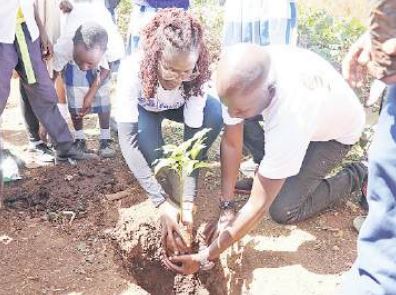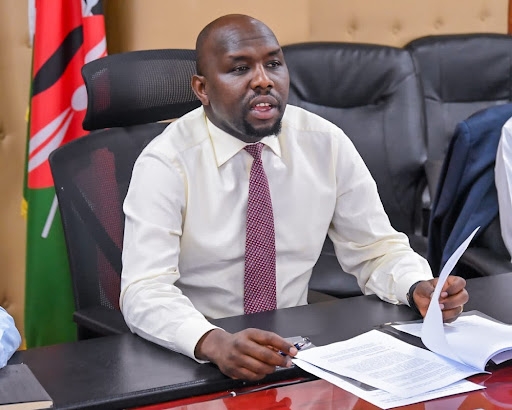

On a quiet schoolyard in Mathare North, students lined up, ready to plant something that might outlast their time in the classroom.
One by one, they pressed small fruit trees into the earth, mangos, pawpaws, avocados, oranges, each one a living symbol of change and, perhaps, continuity.
It was a different kind of school event.
There were no ribbons, no loud fanfare. But what unfolded at Mathare North Primary School marked the beginning of a quiet, practical shift that may be felt in the lives of children for years to come.
The initiative comes from BIC East Africa, best known for the blue BIC Cristal pen that’s been passed from one generation of students to the next.
As the company marks 75 years since that pen first went into production, it is celebrating by planting trees, 1,650 of them, in 22 schools across Kenya.
Each school will receive 75 fruit trees, a number chosen to mirror the anniversary milestone.
The idea, as explained by Paloma Lengema, general manager for BIC East Africa, is to mark the occasion by giving something back to the places where pens like the Cristal have long been part of daily life.
“The BIC Cristal pen revolutionised writing by making pens accessible to everyone,” Lengema said.
“Just like our pen democratised access to writing, we believe this tree planting initiative gives schools and communities an opportunity to benefit economically and environmentally.”
The numbers are straightforward. Each tree is expected to produce around 400 fruits per year. With each fruit fetching about Sh10, the total annual income for all 22 schools could reach Sh6.6 million.
And beyond the economic impact, the trees are projected to sequester 41.25 tonnes of carbon dioxide annually.
But the aim here isn’t just revenue or climate math. It is also about creating schoolyards that grow something beyond just test scores.
“Each tree is not just a symbol of our anniversary. It is a gift to the school and its students,” Lengema said.
“The fruits can be sold or eaten by learners, and over time, this can help schools meet some of their operational costs.”
For education leaders, the initiative is being welcomed as a useful, tangible extension of classroom learning.
Fuad Ali, the chairperson of the Kenya Primary School Head Teachers Association (Kepsha), sees it as a practical step towards merging environmental education with real-life skills.
“As Kepsha, we truly appreciate this initiative. While it starts with just 22 schools, we hope it can expand to all 47 counties. We would love to see every child plant two fruit trees at school and two more at home,” he said.
Ali said the model has the potential to create habits that connect learners to their environment in a way that textbooks cannot.
“It’s not just about green spaces. It’s about sustainable income for schools and families,” he said.
Kasarani deputy subcounty director of education Muyaku Indimuli attended the launch.
“This is not just about planting trees, it is about planting hope. In a few years, these learners will be able to enjoy the fruits, and no child will go without a source of nutrition because of a missed meal. This is education meeting environmental sustainability,” she said.
BIC has committed to supporting the schools over the next two to three years to ensure the trees survive and begin bearing fruit.
The company’s role won’t end with the planting, there will be regular follow-ups and hands-on support.



![[PHOTOS] Gachagua makes impromptu visit to Kiambu](/_next/image?url=https%3A%2F%2Fcdn.radioafrica.digital%2Fimage%2F2025%2F06%2Fe83720c4-a299-41d1-a129-886904e20364.jpg&w=3840&q=100)







